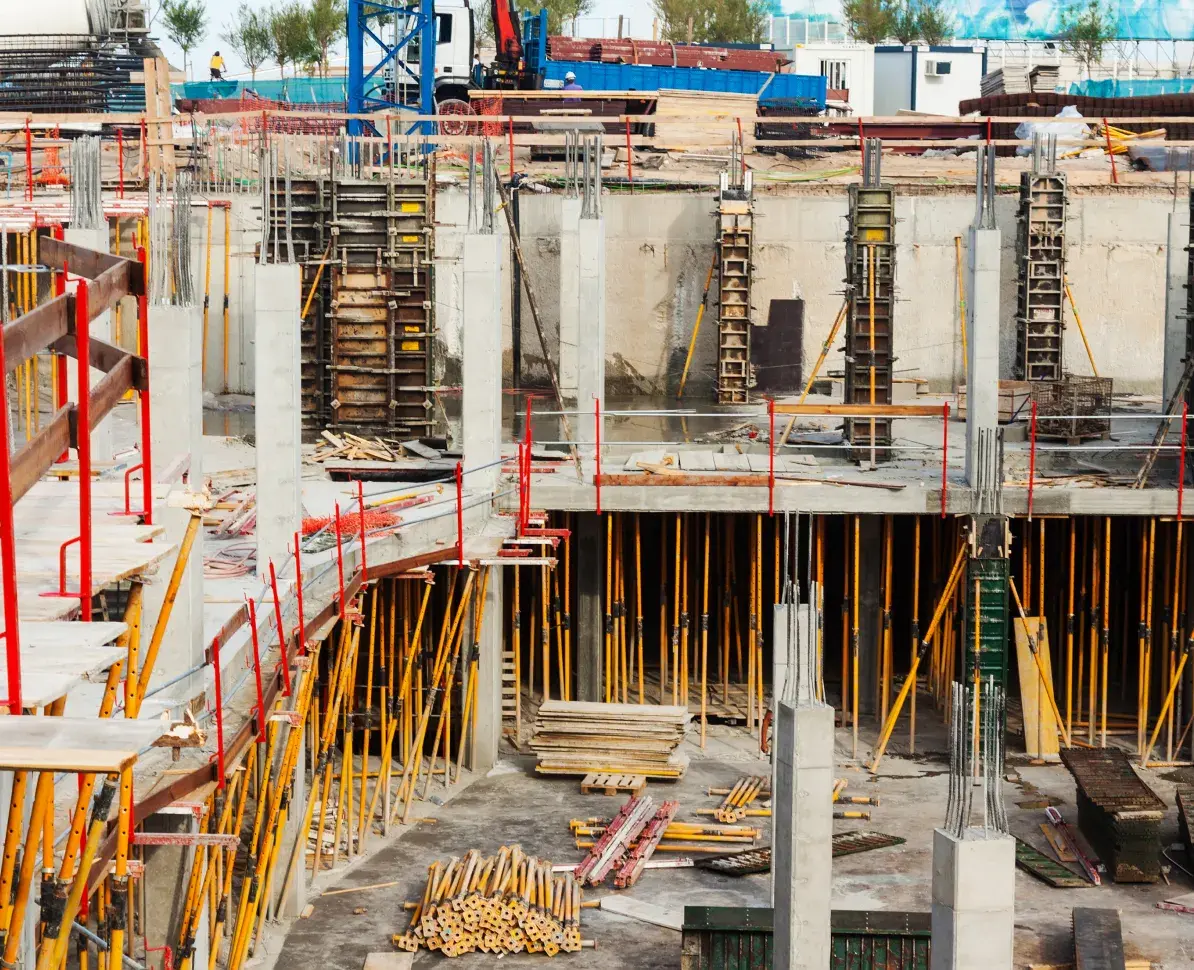Buildings
Monitor, anticipate, react.
Protect your construction sites and anticipate risks remotely.
Soil movements and the fragility of structures pose significant challenges for construction, with risks of subsidence, cracks, and destabilization.
The challenges related to the construction sector
Structural failures, such as cracks, subsidence, or soil movements, are often the result of a combination of multiple factors (unstable soil, vibrations from construction work, nearby structures). Therefore, it is essential to continuously monitor various parameters to anticipate risks and secure construction sites.
Construction site monitoring
a daily challenge
Geotechnical monitoring plays a crucial role in preventing risks associated with construction work, particularly regarding the stability of the soil, foundations, and surrounding structures.
Thanks to connected sensors, it is possible to continuously monitor essential parameters such as soil resistance, structural movements, cracking, and material deformation. These measurements help ensure the safety of workers, protect surrounding assets, and guarantee the smooth progress of projects.
Continuous
and Connected Monitoring with FEELBAT
Our connected sensors, such as the DELTA L+ for the monitoring of cracks and the DELTA R for monitoring the tilt of structures, continuously collect essential data and transmit it in real-time. This approach ensures constant vigilance and significantly reduces the need for manual inspections, guaranteeing optimal precision and efficiency in monitoring.
Furthermore, our alert system for exceeding critical thresholds protects workers, assets, and equipment by sending you mobile notifications.
By providing real-time monitoring, our sensors not only ensure enhanced safety but also more efficient maintenance in complex environments. Their quick installation and autonomy simplify structure monitoring, allowing you to anticipate risks and extend the durability of infrastructures.

Risk reduction
and cost optimisation
Our connected sensors make it easier to monitor many hard-to-reach areas. Thanks to their integration with our platform, data reading and management become simpler and more cost-effective.
This centralised approach helps to reduce risks to personnel and equipment, while limiting manual interventions in potentially hazardous areas.
Thus, our system ensures enhanced safety for teams while optimizing resource usage. It also provides increased responsiveness by quickly detecting any abnormal changes in the monitored structures.

An intuitive monitoring
for optimal monitoring
By integrating our connected sensors, we offer an advanced monitoring solution that combines continuous tracking with a simple and accessible user interface. This technology allows for easy monitoring of structural changes and quick detection of any anomalies.
Our system also offers the ability to set customised alert thresholds based on the specific needs of each site. When a threshold is crossed, an instant notification is sent to the relevant teams, facilitating a quick and effective response.
This approach enhances safety while reducing the risks associated with structural instabilities. It also optimises the management of interventions, thereby limiting costs and the exposure of personnel to hazardous environments.

Our solutions

A web & mobile application
The FEELBAT application is the only mobile app that brings together all the tools in a single, easy-to-use solution.
It gives you the opportunity to install your crack or tilt sensors, configure them, and monitor your structures in real time whether you are remote or not.
The best part? Receive alerts if the threshold is exceeded and edit reports in just a few clicks!
Need more information?
Contact us to find out more!

Use case
As part of monitoring the structural instabilities of buildings and structures, it is essential to instrument the at-risk areas to detect the evolution of cracks and any potential deformations.
This project aims to monitor several critical sections of the structures to ensure the safety of the infrastructure and its occupants.